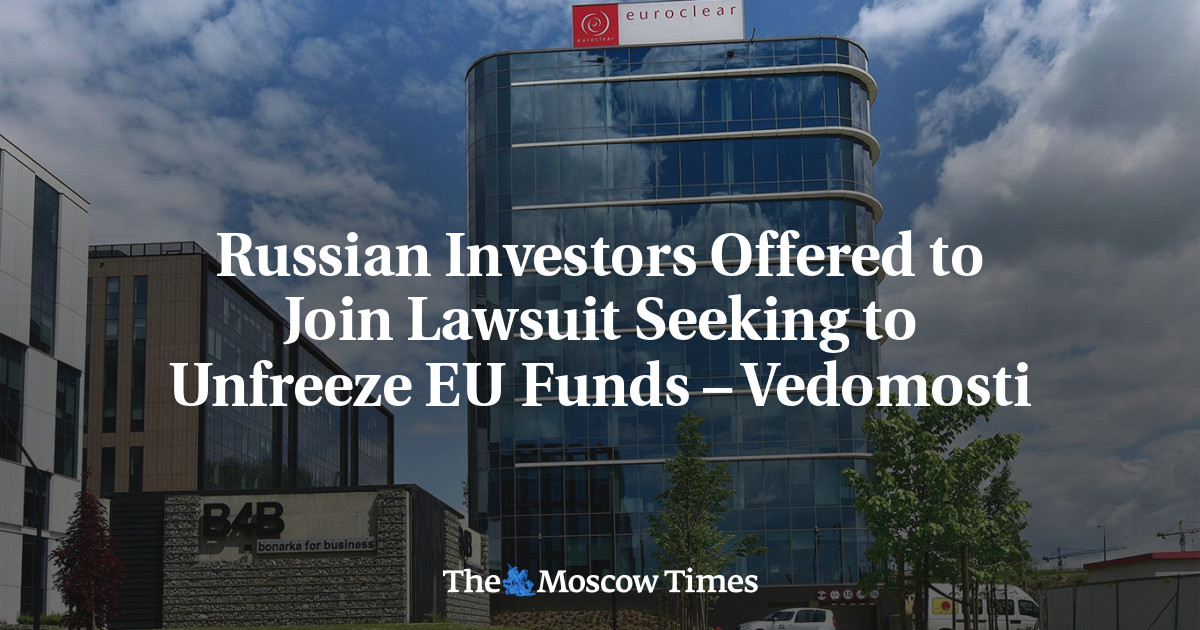
A Russian law firm has announced a class-action lawsuit against European securities settlement houses in Russian courts to recover funds that were frozen over Russia’s invasion of Ukraine, the Vedomosti business daily reported Monday.
EU sanctions on Russia’s National Settlement Depository (NSD) and other Western measures have cut off many Russian investors’ assets held in foreign jurisdictions.
The NSD’s assets held in the Belgium-based Euroclear and Luxembourg-based Clearstream settlement houses have been frozen since the start of the invasion.
In retaliation, Moscow froze Euroclear and Clearstream’s funds and securities held inside Russia.
Nektorov, Saveliev & Partners (NSP) managing partner Alexander Nektorov told Vedomosti that a Russian court could recover Euroclear and Clearstream’s funds and securities blocked by the NSD.
He added that litigation in Russia is “faster and more inexpensive” than in foreign courts.
“Whoever gets to the money first will get lucky,” Nektorov said.
Euroclear is estimated to have generated 734 million euros ($785 million) in interest from the frozen 180 billion euros ($192 billion) of Russian Central Bank reserves and 17 billion euros ($18 billion) held by sanctioned Russians.
Russia’s Central Bank says it receives “tens of thousands” of complaints about the frozen funds from the more than 5 million Russian individuals who hold foreign assets.
Investors interviewed by Vedomosti are divided over the lawsuit’s prospects, with some warning that it could hurt their chances of receiving licenses that would unblock unsanctioned investors’ assets.
Nektorov and other lawyers say, on the contrary, the class-action lawsuit could motivate European depositories to unfreeze Russian assets.
Nektorov cites as an example a Russian court ruling in February that awarded a Russian bank $107 million of Euroclear funds; in April, the Belgian settlement house unblocked $110 million of Russian assets.
Some of the Russian investors considering joining NSP’s class-action lawsuit include the retail brokerage Finam and the managing company Ingosstrakh-Investitsii, according to Vedomosti.
But additional complications include EU sanctions that ban lawyers from representing any Russian and Belarusian legal entities in EU courts.
The EU has been considering options to funnel frozen Russian funds toward Ukraine’s reconstruction efforts.